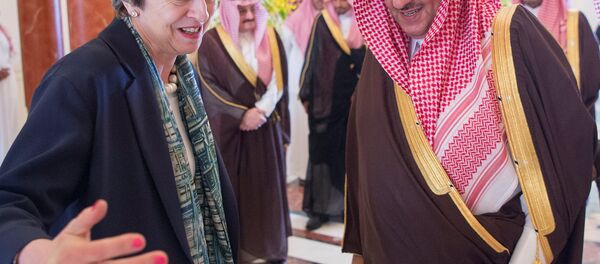Radio Sputnik discussed the issue with information security expert Arjen Kamphuis and British intelligence analyst Glenmore Trenear.
Commenting on the problem, Kamphuis noted that many modern surveillance tools have grown out of software tools that were initially built for Western governments to monitor communications networks and internet connections. However, over the last 15 years, they evolved and are now being used for breaking into the laptops and mobile phones of individuals.
"Initially it was about monitoring traffic over internet networks… for example to prevent crimes. But over time, these tools have grown to include breaking into devices, and so now the classical distinction between targeted surveillance of individuals and mass surveillance is beginning to disappear," Kamphuis told Radio Sputnik.
Many say that these technologies play a crucial role in combating terrorism. However, there is always a danger that surveillance software can fall into the wrong hands. Answering the question whether these technologies make the world safer, or on the contrary — more dangerous, the expert said:
"These are the same tools that Western police and intelligence agencies use, and when they fall into the wrong hands, a lot of information about the networks — about what they can and cannot do — becomes more likely known."
Concerns about the misuse of surveillance technologies have been repeatedly raised by many analysts and politicians. Cases of mass surveillance, secret information leaks and individuals being spied on have raised serious concerns in many countries worldwide.
British intelligence analyst Glenmore Trenear believes that intelligence agencies are unable to cope with the large inflow of information they receive and process it effectively. He cited as an example the work of US intelligence agencies.
"The US intelligence community has a surfeit of data more than they can deal with properly. Also a ridiculous number of people with access to ‘top secret' classified material, as we learned from the Bradley Manning case. Poor vetting and control of 'contractors' exacerbates the situation. And the agencies themselves are constantly ‘locking the stable door after the horse has bolted!'" Trenear stated.
Moreover, surveillance technologies have not proved to be effective in preventing terrorist attacks in Europe, let alone the fact that many of them are used not against terrorists, but against legitimate political activists.
"It doesn't seem that the ability to monitor and surveille is a limiting factor in preventing terrorism," he said. "There are also indications that these tools are actually used more against politically active individuals in every country in the world including people who [are involved] in legitimate political activities, like running opposition parties, against journalists or human rights lawyers, or NGOs that might fight for local human rights," Kamhuis said.
Its buyers named in the report are Algeria, Morocco, Oman, Qatar, Saudi Arabia and the United Arab Emirates. Given each state's record of treating political opponents, the resources could be used to surveil and jail dissidents, investigators claim.
The countries have been condemned by a variety of human rights groups for their harsh approach toward representatives of political opposition. Their residents taking part in unarmed anti-government protests were reportedly fired upon by government forces, while dissidents were said to be detained and tortured without charge.






